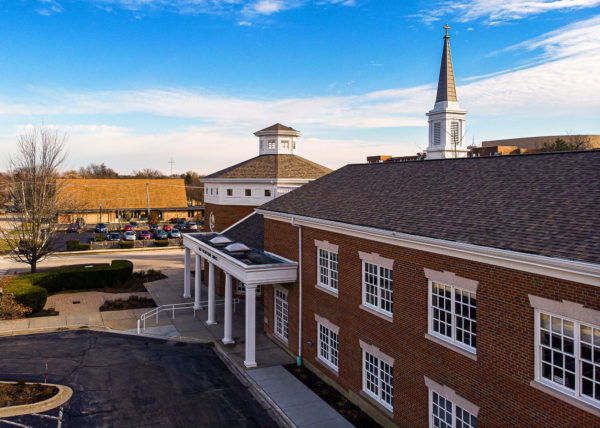On Sunday, we heard Judy preach about the “Chasm”. I was very moved by this sermon. When she put forth the idea that we are manifesting hell itself on earth, I started to weep because, many times, that is what it feels like. We often talk about how divided we are as a people and as a nation. A lot of this division has to do with communication and presentation. Perspective and empathy play a large role, as well.
The church is a source of strength for me, not because of the building, but because of the community, the people. For over a year, you all have been gracious enough to worship apart from one another, outside of the church building. Whether you realize it or not, your gracious spirit has saved lives. Was it several lives? Maybe only a handful? I want you to take that further and wonder if only one life was saved. Does that make it worth it? Given all that we have been able to do, I hope so. The church is a source of strength for me, especially when I think about the empathy being shown towards the hypothetical “one life”.
Empathy is easier to show and maintain when the connection is personal. You have to see yourself in the eyes of others, who you do not understand, who you disagree with, to really understand what it is like to “love your neighbor”. You have most likely heard these messages all of your life. If it has not taken root now, well, I am not sure anything I can say will make a difference. That is why I want to talk about something related, but also very different. I want to talk about “cancel culture”.
As I said, the church is a source of strength for me. That makes the church a perfect place for challenging subjects. I am sure many of you would consider this a challenging subject. Let us recall the last sentence in the first paragraph. Perspective plays a large role in the way you view “cancel culture”. As an aside, from here on out, I am going to stop putting that in quotations.
I recently had a conversation with a church member who was wrestling with the decision made by Seuss Enterprises to stop publishing six of their books due to some insensitive ethnic depictions of people. This member was wrestling with the fact that parent and child had bonded over one of these soon to be canceled books when the child was growing up. It was part of their history. It represented a set of loving moments in time. And now, they are being told that this part of their history is no longer going forward in the public eye. How does one move forward and not feel as if those memories are tainted? How can something that was good for me be bad for others?
The reason why cancel culture affects people in a wide variety of ways has to do with how it affects you personally. If cancel culture affects one of us, personally, in a way where we feel like something is being taken away, whether it is something physical, like a book, or mental, like an ideal or a belief, our response is to sever the empathetic ties we have to each other. The reason for this is the dilemma the church member was facing concerning the Dr. Seuss book. Does my history matter? Do my belief systems that brought me to where I am matter? Do my memories matter? Do I matter when it feels like a piece of me is being taken away? This is the moment where it is crucially important to connect with your empathy and take a step. Do not give in to impulse and say, “My truth doesn’t matter to you? Then, your truth doesn’t matter to me.” Because that is not exactly what is happening, is it?
Think of it like a diet. Yes, a diet. What is healthy for someone might not be healthy for someone else. And furthermore, does your personal health put someone else’s personal health at risk? We go out of our way, and rightfully so, to accommodate those with peanut allergies. Why? Because it is worth it, even if it only saves the “one”. Similarly, do your beliefs and practices put others at risk? Our church member, who lovingly read this soon to be canceled book, was not aware of the insensitive ethnic depictions in the Dr. Seuss book. But now, going forward, this person understands that it is insensitive, potentially harmful to others. The magic trick is being at peace with the fact that you did no wrong. The memory is not the book, itself. The memory is reading to your child. Be at peace with the fact that your memories surrounding this book are full of love, and that going forward the potential is there for those who were poorly depicted to no longer face that kind of discrimination in the world.
There is a lot of toxic behavior surrounding cancel culture. People feel as if they are not being heard, as if their experiences do not matter, and that their beliefs are less. The irony is this is because many are speaking up who have not been heard previously, whose experiences have not mattered as much, and new beliefs are being presented. In whatever your response is, do it with a sense of healthy living, making sure your social diet is not negatively impacting another’s. Do not be upset with someone if they do not like mushrooms. I do not like mushrooms. No need to be upset with me.
Our empathy towards one another matters most in times of crisis, especially when that crisis hits home and feels like a personal attack. Remember, love your neighbor and your enemy. May our empathy be one of our greatest strengths. Amen.
Adam


